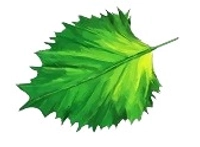
Joginder Nursery
Product details
Neem plant (Azadirachta indica), a cornerstone of traditional Indian medicine and a powerhouse of natural healing. Revered for centuries for its medicinal properties.
Medicinal Benefits of the Neem Plant
The Neem plant offers a plethora of medicinal benefits, making it a versatile addition to your herbal garden:
Skin Health: Neem is renowned for its antiseptic, antibacterial, and anti-inflammatory properties, making it effective in treating acne, eczema, and other skin conditions. Neem paste or oil soothes irritation, reduces redness, and promotes healing.
Hair Care: Neem oil is a popular ingredient in hair care products due to its ability to nourish the scalp, prevent dandruff, and strengthen hair follicles, promoting healthy hair growth.
Oral Health: Neem twigs have been traditionally used as natural toothbrushes (called "datun") in India for centuries. They help in maintaining oral hygiene, preventing gum diseases, and eliminating bacteria that cause bad breath.
Immune System Boost: Consuming Neem leaves or extracts helps boost the immune system, protecting the body from infections and diseases. Its antioxidant properties play a crucial role in overall immune health.
Digestive Aid: Neem stimulates digestion and supports liver function. It aids in detoxification and helps alleviate symptoms of indigestion and bloating.
Insect Repellent: Neem oil is a natural insect repellent, effective against mosquitoes, flies, and other pests. It is environmentally friendly and safe for use around pets and children.
Plant Care Instructions
To ensure your Neem plant thrives and continues to provide its myriad benefits, follow these essential care instructions:
Sunlight: Neem plants thrive in full sunlight. Choose a location that receives at least 6-8 hours of direct sunlight daily.
Soil: Plant your Neem in well-draining, sandy loam soil. Ensure the soil pH is between 5.5 and 7.5. Good drainage is crucial to prevent waterlogging, which can cause root rot.
Watering: Neem plants prefer moderate watering. Allow the soil to dry out slightly between waterings, especially during cooler months. Avoid overwatering to prevent fungal diseases.
Temperature: Neem plants tolerate a wide range of temperatures but prefer warmer climates. Protect them from frost and cold drafts, especially during winter.
Fertilization: Use a balanced, organic fertilizer during the growing season to promote healthy growth. Avoid excessive nitrogen, which can lead to excessive leaf growth at the expense of fruit or flower production.
Pruning: Prune Neem plants regularly to maintain shape and encourage bushy growth. Remove dead or diseased branches to promote airflow and prevent pests.
Pest Control: While Neem is naturally pest-resistant, monitor for common pests such as aphids and scale insects. Neem oil can be used as a preventive measure or treatment for pest infestations.
Harvesting: Harvest Neem leaves and seeds as needed. Leaves are typically harvested throughout the year, while seeds are collected when mature for extracting Neem oil.
Please Note: Images are for reference purposes only. Actual product may vary in shape or appearance based on climate, age, height, etc. The product is replaceable but not returnable.
Similar products